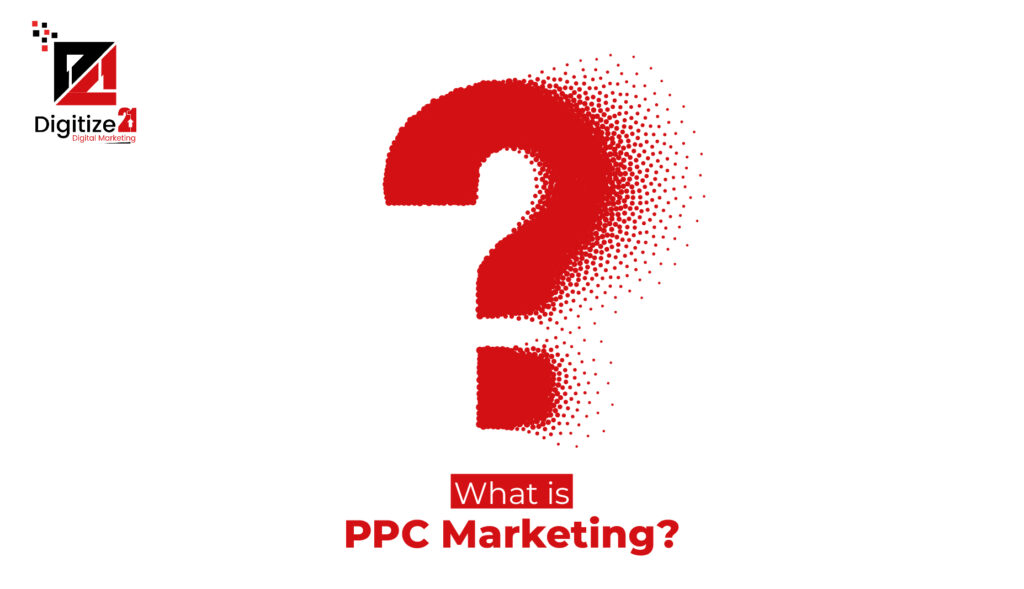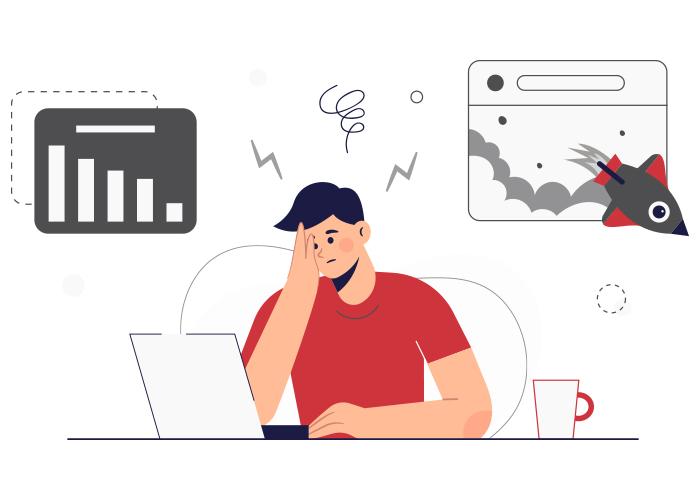
What is PPC Marketing? Many people have same question in their mind. (Pay-Per-Click) has emerged as a vital tool for driving targeted traffic and achieving measurable results. But what exactly is PPC marketing, and how does it work? Let’s delve into the intricacies of this dynamic advertising strategy to understand its significance and potential impact on your business growth.
Understanding PPC Marketing
PPC marketing, also known as paid search advertising, is a form of online advertising where advertisers pay a fee each time their ad is clicked. It’s essentially a way of buying visits to your website rather than earning them organically through search engine optimization (SEO).
How Does PPC Work?
When a user searches for a keyword related to your business on a search engine like Google, your ad has the potential to appear above or below the organic search results. This placement is determined by a bidding system, where advertisers bid on keywords relevant to their target audience. The ads are then displayed to users based on a variety of factors, including bid amount, ad relevance, and quality score.
Benefits of PPC Marketing
1. Immediate Results.
Unlike SEO, which can take months to yield noticeable results, PPC advertising delivers instant visibility and traffic to your website. Once your ads are approved, they can start generating clicks and conversions right away, providing a quick return on investment (ROI).
2. Targeted Reach.
PPC allows you to target your ads to specific demographics, geographic locations, interests, and even device types. This precise targeting ensures that your ads are displayed to users who are most likely to be interested in your products or services, maximizing the efficiency of your advertising budget.
3. Measurable Performance.
One of the greatest advantages of PPC marketing is its ability to track and measure performance metrics in real-time. Through platforms like Google Ads and Bing Ads, advertisers can monitor key metrics such as click-through rate (CTR), conversion rate, cost per acquisition (CPA), and return on ad spend (ROAS). This data enables informed decision-making and optimization of ad campaigns for better results.
4. Flexibility and Control.
PPC offers unparalleled flexibility and control over your advertising campaigns. You have the freedom to set your budget, adjust bidding strategies, target specific keywords, and schedule ad delivery according to your business objectives. This level of control allows you to optimize your campaigns for maximum effectiveness and efficiency.
Types of PPC Advertising
- Search Ads: Text-based ads that appear on search engine results pages.
- Display Ads: Visual ads that appear on websites within the Google Display Network.
- Social Media Ads: Ads displayed on social media platforms like Facebook, Instagram, and LinkedIn.
- Remarketing Ads: Ads targeted at users who have previously visited your website.
Targeting Your Audience.
One of the key strengths of PPC marketing is its ability to target specific demographics, interests, and behaviors. Through careful audience segmentation, you can ensure that your ads are being shown to the most relevant users, increasing the likelihood of engagement and conversion.
Crafting Compelling Ads.
In the world of PPC, crafting compelling ads is essential to capturing the attention of your audience and driving clicks. This involves creating concise, attention-grabbing copy that clearly communicates the value proposition of your product or service. Additionally, incorporating eye-catching visuals can help your ad stand out from the competition.
Budget Management.
Effective budget management is crucial to the success of your PPC campaigns. Setting a realistic budget and allocating funds strategically across different campaigns and ad groups will help you maximize your return on investment (ROI) and prevent overspending.
Monitoring and Optimization.
PPC is not a set-it-and-forget-it strategy; it requires ongoing monitoring and optimization to ensure optimal performance. By regularly analyzing key metrics such as click-through rate (CTR), conversion rate, and cost per acquisition (CPA), you can identify areas for improvement and make data-driven adjustments to your campaigns.
PPC vs. SEO
While PPC and SEO both aim to increase online visibility, they operate in different ways and offer unique benefits. PPC provides instant visibility and control over ad placement, whereas SEO focuses on organic rankings and long-term sustainability. Ideally, businesses should incorporate both strategies into their digital marketing efforts for maximum impact.
Common PPC Mistakes
Despite its effectiveness, PPC can be tricky to master, and many advertisers fall victim to common pitfalls. Some of the most common mistakes include targeting broad keywords, neglecting ad extensions, and failing to optimize landing pages for conversions. By avoiding these pitfalls and following best practices, you can maximize the success of your PPC campaigns.
FAQs
What is the difference between PPC and SEO?
PPC (Pay-Per-Click) involves paying for ads to appear on search engine results pages, while SEO (Search Engine Optimization) focuses on improving organic search rankings through website optimization and content creation.
How much does PPC advertising cost?
The cost of PPC advertising varies depending on factors such as industry competitiveness, keyword popularity, and ad placement. Advertisers bid on keywords, and the cost per click (CPC) is determined by the bidding process.
How can I measure the success of my PPC campaigns?
Key metrics to measure the success of PPC campaigns include click-through rate (CTR), conversion rate, cost per click (CPC), and return on investment (ROI). Tracking these metrics allows you to assess the performance of your ads and make data-driven decisions.
Are there any risks associated with PPC advertising?
While PPC advertising offers numerous benefits, there are some risks to consider, such as overspending on ads that fail to generate a positive return on investment (ROI). It’s essential to monitor campaigns closely and make adjustments as needed to mitigate these risks.
How long does it take to see results from PPC campaigns?
The timeline for seeing results from PPC campaigns can vary depending on factors such as industry, competition, and campaign optimization. In some cases, businesses may see immediate results, while others may require more time and refinement to achieve their goals.
In Summary
PPC marketing is a powerful advertising strategy that can drive targeted traffic, generate leads, and boost sales for your business. By understanding how PPC works and harnessing its benefits, you can create highly effective ad campaigns that deliver tangible results. Whether you’re looking to increase brand awareness, drive website traffic, or improve conversion rates, PPC offers a versatile and cost-effective solution to achieve your marketing goals. Embrace the power of PPC and unlock the full potential of your online advertising efforts.



